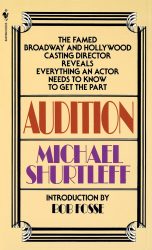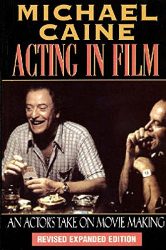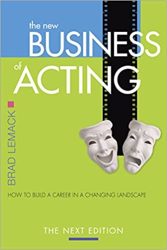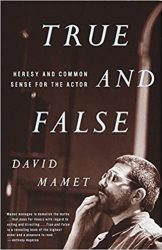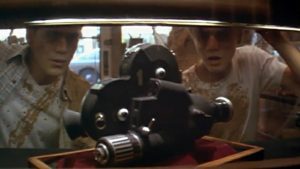
You finally got the email: after researching talent agencies and sending them your acting package, a talent agent replied that they would like to meet you. Now comes the question: “Well, how do I prepare for a meeting with a talent agent?” Here’s what you can do to make sure you rock your meeting with the agent:
Bring physical copies of your marketing materials and a list of your industry connections. Practice elaborating on your resume and career goals. Be ready to perform if the agent requires it. Finally, research the agent and/or the agency and come up with questions for them.
Sounds a bit overwhelming? Let us break it down for you! Check out our seven tips for preparing for your agent meeting below.
1. Bring your marketing materials
This meeting is kind of like an audition… So bring the same marketing materials as you would to an audition: your headshot* and resume. Additionally, you can gather any reviews or articles in which you are featured. This proves to the agent that you have been doing the legwork of promoting yourself and will increase the odds of them wanting to represent you.
You could also bring these materials as well as your demo reels or clips from work you’ve done on a USB drive and have it ready to give to them.
*A little tip: when you meet with an agent for the first time, you can and should bring in different headshots to show the agent that you can rock a variety of looks, not just the “main” one that they’ve already seen.
2. Make a list of industry connections
Speaking of doing the legwork, who are your fans in the industry? Whether they are directors, producers, or writers that you have worked with, make a list of the people with whom you have relationships in the business. Casting directors who know you well or call you in often for auditions are also great contacts to put on the list.
By coming up with this list, you are demonstrating to the agent that you already have connections that might open up some doors for future opportunities. You might even establish a relationship with the agent if you have contacts in common.
If you’re new and you don’t have lots of connections yet, it’s important for you to demonstrate your knowledge of the industry in your part of the world. For example if you search the city you live in and “film industry”, you’ll probably find a government agency that has a list of all the things that are being filmed there. Being “in the know” is an important quality for anyone working in the TV and film industries.
You could also make sure that you know all the casting directors names. This will show your prospective agent that you have an understanding of the market you live in and the opportunities there. It will also communicate a strong work ethic and an interest in the acting industry that will make you stand out as a pragmatic person, not just a dreamer.
3. Be ready to elaborate on your professional history
Your resume is an excellent overview of your career as an actor, but most agents will likely want to dig deeper into some of your acting training and credits. If we’re being honest here, we actors all pump up our resumes a bit to make ourselves seem more experienced or interesting. And acting agents know that, so they are always mildly skeptical about resumes. Therefore, don’t be surprised if they poke around with questions regarding your professional history.
If you want a better idea of what types of questions a talent agent might ask during your meeting, read our article on 10 Questions Acting Agents Ask You.
4. Think of your career goals
Spoiler Alert: One of the questions that the agent will undoubtedly ask you is your goals for the future, so be ready with a polished answer! Going into the meeting, you should clearly know where you want your career to go in the next few months to the next few years. An excellent way to formulate goals is with the SMART structure: Specific, Measurable, Achievable, Relevant, and Time-Bound.
For example let’s deconstruct this SMART goal:
“In the next six months, I would like to book two one-liner roles in hit TV shows.”
- Specific: There is no doubt what the goal is: this actor wants to have two one-liner gigs in the following months.
- Measurable: This actor can measure their success in achieving that goal by looking back in six months whether they got two one-liner gigs or not.
- Achievable: If this actor already has a few credits under their belt, getting two one-liner roles in hit TV shows can be an achievable goal. (An unachievable goal on the other hand would be to book two lead roles in Marvel movies in the next year if the actor is just starting out.)
- Relevant: Getting one-liner roles in hit TV shows is definitely a step in growing an acting career.
- Time-bound: This actor has given themselves a deadline to achieve their goal by. Six months from now, they can look back and determine whether or not they have accomplished their goal.
“In the next three years, I would like to be a recurring guest star in a hit TV show.”
- Specific: Again, this is clear: this actor wants to be a recurring guest star in a hit TV show.
- Measurable: Either the actor will get this type of role three years from now or they won’t.
- Achievable: This goal could be a natural progression of the previous one, in which case, it would be achievable.
- Relevant: Being a recurring guest star on a TV show can be a big milestone in an actor’s career.
- Time-bound: This goal is bound to a three year deadline.
Let’s go for a bit of a counter-example: “I would like to advance in my acting career.”
- Specific: If we asked 10 actors what advancing their career meant, we’d likely come up with 10 different answers. Therefore, this goal is not specific enough.
- Measurable: Since the goal is not specific, it is difficult to determine whether or not it has been achieved. Getting one more audition than the year before might be considered “advancing in your career”, but don’t you want to strive for more?
- Achievable: Again, since the goal lacks specificity, it is hard to determine whether it is achievable or not.
- Relevant: This goal is relevant since the actor wants to advance their acting career.
- Time-bound: There is no timeline for achieving this goal at all.
For bonus points to this question, elaborate on what YOU can do to progress towards those goals.
5. Be ready to perform
But this isn’t really an audition. Right?
Well… to tell the truth, a meeting with an agent is very much like an audition in which you are trying out for the part of “Ideal Client.” The agent will not only be assessing your professional history and your answers to their questions but also your general attitude and demeanour. So, be professional and friendly towards the agent and all the staff you may encounter on your way to the meeting. But that is beside the point…
Each meeting with an agent is going to be different from the last. Some may ask you to perform; some may not. Some may warn you to prepare some material, and some may ask you on the spot. So be ready to deliver a performance. It’s a good idea to have a monologue or two in your back pocket in case the agent wants to see “something.” Alternatively, the agent might give you a script to read, so you must be ready to think on your feet.
Other times, the agent might ask you to record something for them after the meeting. They will send you a few audition bits and ask you to record and send them. This might happen even if you have a demo reel, so don’t be surprised… Here is why agents want to see what you can do on a quick turnaround…
An agent’s job is to send you to auditions, and they depend on you doing a great job in the audition room, getting the part, and getting paid so they can get their commission. Not to mention that your performance can affect their reputation. When you think about it, it makes sense that they would want to get a glimpse of what you are like in an audition room and how good of a performance you can deliver beyond your demo reel.
6. Research the agent/agency
This is important for a few reasons:
- It’ll make the agent feel important;
- It will communicate that you are serious about the opportunity;
- It will demonstrate that there’s a strategy behind the meeting.
For example, if you know that the agent specialises in certain types of actors, has been associated with actors whose career blew up after only a few years, or is just highly respected in the industry, use these rationales to explain to the agent why you want to work with them specifically. Same goes for the agency. If you don’t know much about the agent but you know a lot about the agency, that’s okay: use your knowledge of the agency to wow them instead. It’s also important to talk about what you think makes a good agent or agency because it shows an understanding of the industry and that you’re coming into this with both an artistic and a business app.
If you are having difficulty finding information about the agent, don’t panic. This is normal, since many agents try to make themselves as difficult to contact as possible, because of the sheer number of actors who try to reach them every day. This is where IMDBPro can be a huge resource, since it allows you to find an agent and see who they have on their rosters. Just pop the agent’s name in the search bar and you will find their profile. An agent’s profile details what agency they work for, who they have in their roster, and sometimes even connections you both share.
Agents will likely be impressed if you show off how much you know about them and their agency. On the other side of the coin, they might be offended if you know next to nothing about themselves or their agency. You want to come across as if you are excited about meeting with this agent specifically, and not just happy that you got a meeting with any agent period.
7. Come up with questions for the agent
A meeting with an agent is not structured like a job interview. It won’t start with the agent asking you questions, then you asking them questions. Instead, it’s more of a discussion. They might ask you something, and then you might want to ask them a question. It’s important for you to have questions to ask the agent for three reasons:
- The best way of avoiding that the meeting feel like an interrogation is to treat it like a normal conversation with some back and forth. Thinking about questions ahead of time will help you sprinkle them into the conversation.
- Of course, you want to show the agent that you are serious about this career move and that you are interested in working with them specifically.
- You also owe it to yourself to make sure that the person who will be in charge of your career for the next year or more is a good fit for you. So ask them questions about their work style, how often they get in touch with their actors, how they would like you to contact them, etc.
For example, if the agent asks you what you know about them or the agency, you can respond (because you’ve done your research, right?) and later turn the question around on them and ask what they see in you, what types of roles they can envision you in, etc.
Ultimately, the types of questions that an actor should ask a talent agent could be a whole article in itself… And it is! Check out our 10 Best Questions to Ask an Acting Agent article.
Conclusion
By using these seven tips to prepare for your talent agent meeting, you will be more than ready for anything that comes your way! On the day of the meeting, be polished and professional, and try to make a great impression. But, remember that, although the agent is the one who will (hopefully) be handing you a contract, they are working for you as much as you are working for them. So make sure you are happy with your prospective agent before signing the first contract that comes your way. Now go and nail that meeting!
